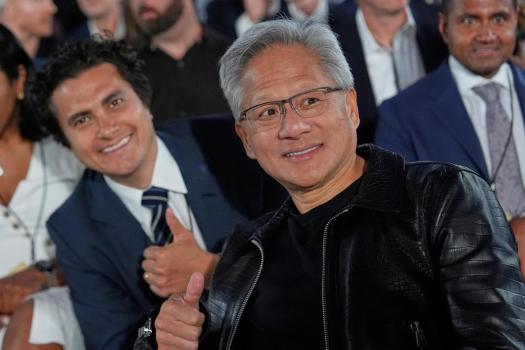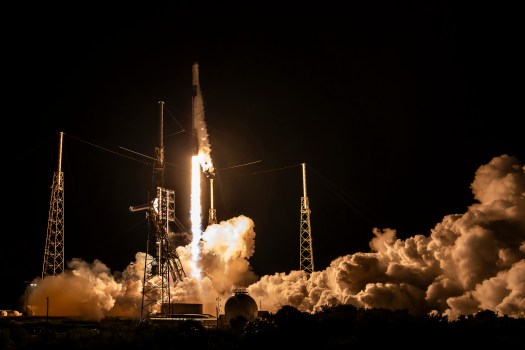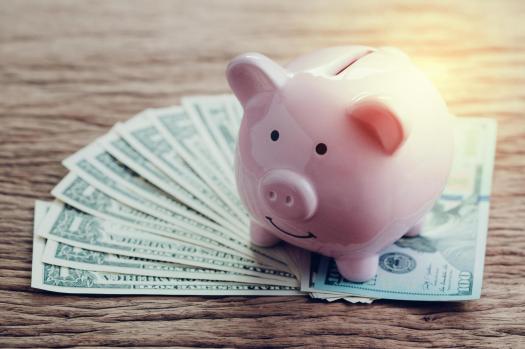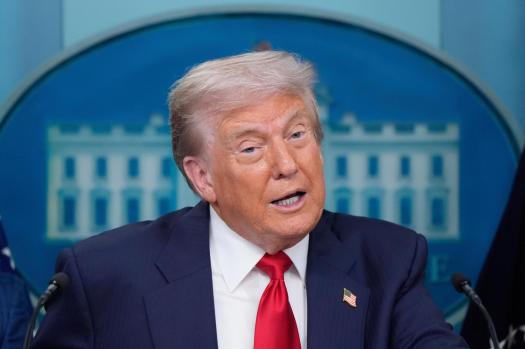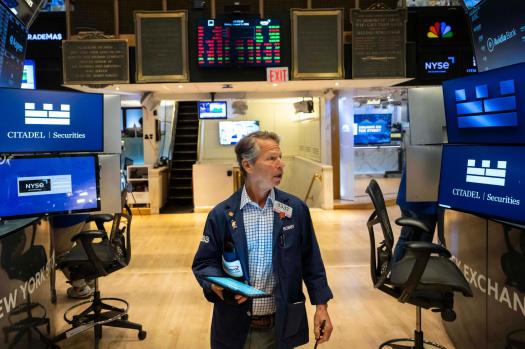The Associated Press
NEW YORK (AP) As part of an agreement to obtain export permits for the chips, Nvidia and AMD have committed to give the U.S. government 15% of their profits from chip sales to China.
Related Articles
-
A pause on higher tariffs for China is due to expire Tuesday. Here s what to know
-
Ford to invest nearly $2 billion in Kentucky assembly plant to produce electric vehicles
-
SeaWorld Orlando prepares 8-coaster challenge Saturday
-
US stocks drift around their record heights as Wall Street braces for an update on inflation
-
Shopping for an electric vehicle? How long until that $7,500 tax credit expires?
Nvidia and AMD announced in July that Washington would permit companies to resume sales of the H20 and MI308 processors, which are used in the development of artificial intelligence, after the Trump administration suspended the sale of sophisticated computer chips to China in April due to national security concerns.
In a press conference on Monday, President Trump affirmed the conditions of the unusual deal, pointing out that when Nvidia requested to sell the outdated H20 chip to China, he first demanded 20% of the sales proceeds. The president gave Jensen Huang, the CEO of Nvidia, credit for securing a 15% cut.
So we worked out a small agreement. According to Trump, he is simply selling an outdated chip.
Nvidia stated that they would follow the export regulations set forth by the government, but they did not address the specifics of the deal or its quid pro quo nature.
We adhere to the guidelines established by the US government for our involvement in international markets. “We hope export control rules will allow America to compete in China and worldwide, even though we haven’t shipped H20 to China in months,” Nvidia told the AP in a statement. America cannot lose its supremacy in telecommunications by replicating 5G. If we race, America’s AI tech stack might become the global norm.
A request for comment from AMD was not immediately answered.
Concerned about the alleged arrangement, the leading Democrat on a House panel on competitiveness with China described it as a risky abuse of export rules that jeopardizes our national security.
The ranking member of the House Select Committee on China, Rep. Raja Krishnamoorthi, stated that he would demand complete transparency from the administration and inquire about the legal justification for this arrangement.
According to him, our export control system must be founded on real security concerns rather than innovative taxing plans masquerading as national security policy. Chip export controls are neither casino chips, nor are they bargaining chips. Raising money by risking our national security is not a good idea.
Senior fellow and China specialist Derek Scissors of the conservative American Enterprise Institute questioned the deal’s legitimacy and cautioned against jeopardizing national security for financial gain.
Derek Scissors, a senior scholar and China expert at the conservative American Enterprise Institute, stated that there is no precedent for this, most likely due to the fact that export taxes are unlawful. Although they refer to it as a fee, 15% of sales proceeds is actually a normal tax. I don’t believe the arrangement is long-lasting because of this.
There are two potential ramifications if it persists. First, well-known businesses and products need to think about a potential export tax. Or the tax is only imposed in special circumstances, such when export regulations change. According to Scissors, then we would jeopardize national security in order to raise tax money, which is essentially equivalent to reducing the defense budget.
Nvidia claimed in July that strict export regulations pertaining to its chip shipments would cost the business an additional $5.5 billion. In addition to warning that U.S. export restrictions may ultimately drive other nations toward Chinese artificial intelligence (AI) technology, they have contended that such restrictions impede U.S. competition in a sector in one of the biggest technological markets in the world.
In July, Commerce Secretary Howard Lutnick told CNBC that a trade agreement on rare earth magnets between the two nations was connected to the renewed sale of Nvidia’s chips in China.
The AI race between the two biggest economies in the world has revolved around restrictions on the export of sophisticated processors to China, but these measures are equally divisive. Supporters contend that in order for American businesses to maintain their dominance, China must be sufficiently slowed down by these constraints. Opponents counter that the export restrictions have flaws and may nevertheless encourage innovation. Concerns about China using cutting-edge processors to aid in the development of its own AI capabilities were especially rekindled in January with the introduction of the China sDeepSeekAI chatbot.
The reporting was aided by Associated Press journalists Paul Wiseman, Didi Tang, Josh Boak, and Shawn Chen.
